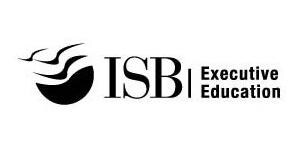Q&A: Analytic skills equal career advancement
MBA programs prepare future business leaders for the big data era
New research by McKinsey projects a massive shortfall in analytical talent by 2018, and that includes analytics-savvy leaders. In India, the need is especially acute. According to business professor Bhimasankaram Pochiraju, nearly 60 percent of Indian organizations use advanced analytics – SAS® Analytics – to inform their business decisions.
Pochiraju is a Clinical Professor and Executive Director of Applied Statistics and Computing at the Indian School of Business (ISB). He says graduates from ISB’s MBA program are sought for senior positions in top firms because of the prestige of ISB and their advanced analytic skills. He should know: Pochiraju has been teaching for more than 45 years and helping prepare more than 1,500 graduate students for business careers.
Since 2003, Pochiraju and other ISB professors have been using SAS in their research, and in the analytics courses in its MBA curriculum. In a recent interview, we asked him why students choose ISB and what value they hope to get from a graduate degree that includes courses in advanced analytics.
As our professors and students often use very large data sets that require powerful analytics, SAS was the natural choice.
Bhimasankaram Pochiraju
Clinical Professor and Executive Director of Applied Statistics and Computing
SAS: Why did you choose SAS for your statistics courses?
Pochiraju: Big data is here to stay. And so a familiarity with analytics will have a profound effect on the success of these future business leaders. But the management program at ISB goes beyond that to include courses, certifications and majors in advanced analytics and statistics.
As our professors and students often use very large data sets that require powerful analytics, SAS was the natural choice. In addition, we regularly collaborate with scientists around the globe, using Wharton Research Data Services (WRDS) or similar platforms, and the data in these platforms are usually shared in SAS.
Why do you think prospective students choose ISB’s Fellowship Program in Management?
Our goal is to enhance the analytical reasoning power of the students, helping the leaders of tomorrow learn the importance of making data-driven decisions. The challenge is to provide them with analytics courses that would best fit their academic and professional background and aspirations. ISB was the first business school in South Asia to be accredited by the Association to Advance Collegiate Schools of Business. AACSB accreditation assures students that they will be learning the material they need to become effective, sought-after leaders.
What sort of projects do your students work with to demonstrate their SAS skills?
The students generally work with very large data sets. For example, government data on poverty or stock market data tend to involve sophisticated analysis on big data. Several Indian services organizations, particularly in health care, use SAS to report their findings to regulators and their customers abroad.
Our MBA graduates are highly sought after by these and other organizations for senior level positions. The business world is not static – it’s always evolving to meet current customer needs, business objectives and global realities. Emerging ISB graduates will play a huge role in that evolution.

Challenge
- Enhance the analytical reasoning power of students.
- Help the leaders of tomorrow learn the importance of making data-driven decisions.
Solution
Benefits
- Graduates gain experience and highly sought-after analytical skills using SAS.